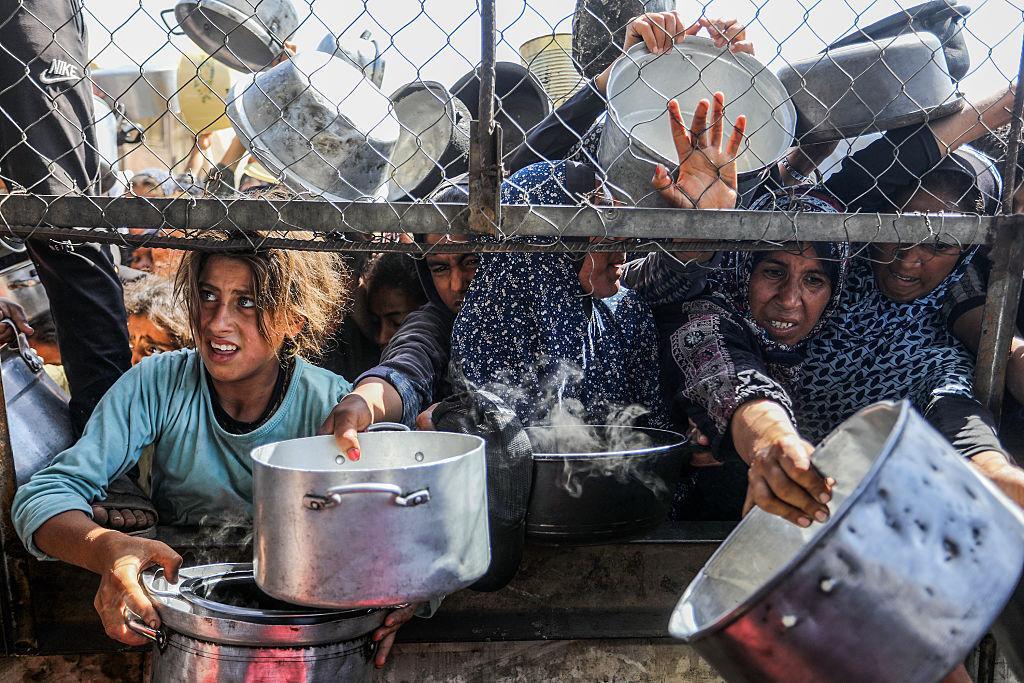
Eid in Gaza: Prayer Amidst Ruins, Hunger, and Growing Humanitarian Crisis
June 6, 2025, was a day of solemn reflection for Palestinians in Gaza as they observed Eid al-Adha amidst the ongoing devastation. The usually festive atmosphere of the Islamic holiday was overshadowed by the devastating effects of the recent conflict, which has left a trail of destruction, displacement, and human suffering. Amidst the ruins, the resilience of the Gazan people was palpable as they gathered for prayers in makeshift open spaces, a testament to their unwavering faith and hope.
The Israeli-Palestinian conflict has been ongoing for decades, with the recent escalation having a disproportionate impact on the already vulnerable population of Gaza. The humanitarian crisis in the region has reached catastrophic proportions, with over 54,000 lives lost, and widespread displacement, destruction, and economic devastation. The United Nations has warned of impending famine affecting nearly 500,000 people, exacerbating an already dire situation.
As Eid al-Adha approached, the people of Gaza faced an unprecedented challenge in accessing basic necessities, including food, water, and shelter. The conflict has disrupted the normal functioning of markets, and food scarcity has become a daily reality for many families. The World Food Programme (WFP) has reported that an estimated 70% of the population in Gaza is food insecure, with many struggling to access the most basic items.
In the midst of this chaos, the people of Gaza came together to observe Eid al-Adha, a celebration that typically involves feasting, gift-giving, and family gatherings. However, this year’s celebrations were a far cry from the joyous atmosphere that is usually associated with the holiday. Instead, residents gathered in open spaces, such as streets, parks, and even rooftops, to perform their Eid prayers, a stark reminder of the devastation that has befallen the region.
The destruction of mosques and other religious institutions has further exacerbated the challenges faced by the people of Gaza. Many mosques have been destroyed or damaged, leaving worshippers with no alternative but to gather in makeshift spaces. The lack of adequate facilities has not only hindered the ability of people to observe their religious practices but has also created a sense of vulnerability and uncertainty.
Despite these challenges, the people of Gaza have shown remarkable resilience and determination. The Eid al-Adha celebrations, although subdued, were a testament to the strength and faith of the Gazan people. In the face of adversity, they have come together to support each other, sharing what little they have and providing comfort to those in need.
The humanitarian crisis in Gaza is a stark reminder of the need for urgent action to address the root causes of the conflict. The international community must work together to provide critical aid and support to the people of Gaza, ensuring that they have access to the basic necessities of life. The ongoing devastation has far-reaching consequences, not only for the people of Gaza but for the entire region.
As the world continues to grapple with the complexities of the Israeli-Palestinian conflict, it is essential to remember the human toll that it takes on innocent civilians. The people of Gaza are not just statistics or news headlines; they are human beings who deserve dignity, respect, and the right to live in peace and security.
As we reflect on the Eid al-Adha celebrations in Gaza, we are reminded of the power of faith, hope, and resilience in the face of adversity. The people of Gaza have shown us that even in the darkest of times, there is always a glimmer of light, a sense of community and solidarity that binds us together.
Source:
https://thecsrjournal.in/eid-al-adha-in-gaza-faith-endures-amid-devastation-and-food-shortages/



